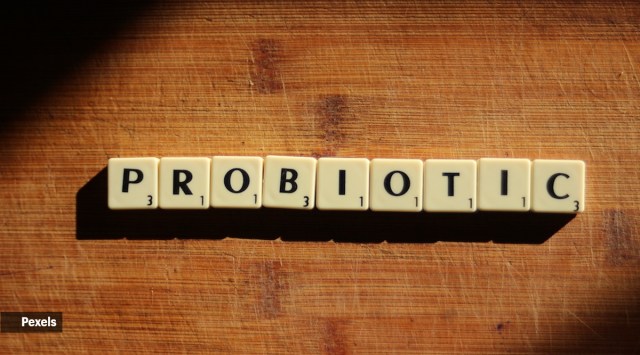- India
- International
Can probiotics boost vaginal health?
Sold in drugstores and online marketplaces and advertised on Instagram and in subway ads, many of these supplements (which can be taken orally or vaginally) claim to seed the vagina with friendly bacteria that can “restore feminine balance,” “prevent the intimate troubles” and “create an ideal environment for healthy microflora to flourish.”
 Pills and suppositories that promise to balance the vaginal microbiome are lining drugstore shelves and online marketplaces. But are they backed by science? (Photo: Pexels)
Pills and suppositories that promise to balance the vaginal microbiome are lining drugstore shelves and online marketplaces. But are they backed by science? (Photo: Pexels)By Rachel E. Gross
Before there were vaginal probiotics, there was the yogurt douche. In the 1970s, a common home remedy for yeast infections and other irritating ailments was to soak a tampon in plain, unsweetened yogurt and insert it into the vagina. The same live bacteria that make yogurt beneficial for the gut, the thinking went, might also be good for the vagina.
Though yogurt douching never went commercially mainstream, the concept of infusing an ailing vagina with good bacteria has, in the form of vaginal probiotics. Sold in drugstores and online marketplaces and advertised on Instagram and in subway ads, many of these supplements (which can be taken orally or vaginally) claim to seed the vagina with friendly bacteria that can “restore feminine balance,” “prevent the intimate troubles” and “create an ideal environment for healthy microflora to flourish.”
Many of these product’s claims are vague, but some are more bold in their advertising, promising to prevent or treat common vaginal problems like yeast infections and bacterial vaginosis. But do they actually work? Here’s what we know.
How does the vaginal ecosystem get out of whack?

Think of the vaginal microbiome as a rainforest: a unique ecosystem teeming with microscopic life including bacteria, viruses and yeast. For many (though not all) premenopausal women, the dominant microbes are certain species of a bacterial group called Lactobacillus. Other members of this group live in the gut and ferment dairy products like yogurt and cheese.
But the Lactobacillus in the vagina are special. They’ve likely adapted over thousands of years to digest sugars shed by vaginal cells and spew out lactic acid, creating a mildly acidic environment that is inhospitable to bacterial invaders. This helps form a crucial barrier between you and not-you, protecting your reproductive tract from infection and disease.
Lots of things can disrupt vaginal Lactobacilli, including antibiotics, menstruation, douching, certain sexually transmitted infections and semen. When Lactobacilli numbers fall, other bacteria or yeast normally present in the vagina can overgrow, causing various types of imbalance.
One of the most common states of imbalance is bacterial vaginosis — an ecosystem shift away from Lactobacillus and toward a diversity of other bugs that thrive in low-oxygen environments. Its telltale signs include itchiness around the vulva, a thin gray-white discharge and a “fishy” odor. B.V. can also make you more susceptible to S.T.I.s like chlamydia, gonorrhea and H.I.V., and has been associated with preterm birth.
Currently, antibiotics are the only recommended treatment for symptomatic B.V., but experts say they’re an imperfect solution. Like a forest fire, they tend to wipe out not only the infection, but most of the vagina’s microbial inhabitants, leading to an imbalance that can lead to future infections. Vaginal probiotics, their makers claim, could be a simple and effective alternative, adding “good” microbes and strengthening the ecosystem before or during an infection.
So are vaginal probiotics the solution to yeast infections and B.V.?
They might be in the future. But the pills and suppositories available today have not yet been proven to work.
Based on what experts know, vaginal probiotics must satisfy two criteria to be effective: They should contain a vaginal strain, like Lactobacillus crispatus, that has been shown to protect against infection; and they should be inserted directly into the vagina.
Most of the products on the market, however, don’t check both of those boxes. Many oral and suppository probiotics contain bacterial species cultivated from the gut or from fermented foods that aren’t natural inhabitants of the vagina. “Biologically, I don’t think it makes a whole lot of sense,” said Catriona Bradshaw, a sexual health expert at Monash University in Melbourne, Australia, who researches bacterial vaginosis.
And the majority of vaginal probiotics on the market are oral capsules, which studies suggest are unlikely to alter vaginal flora. That’s because the bacteria would have to make the treacherous journey down through the gut, out the anus and then crawl their way over to the vagina.
“That is not happening,” said Jacques Ravel, a microbiologist at the University of Maryland School of Medicine who studies the vaginal microbiome. (Dr. Ravel is also chief scientist at LUCA Biologics, a biotech company developing probiotics for B.V. and preterm birth.)
A few products are meant to be taken vaginally — including FloraFemme vaginal probiotic suppositories ($50 for 6 capsules), VagiBiom suppositories ($66 for 30 suppositories) and Physioflor vaginal tablets ($27 for two tablets).
Some, but not all, of the suppositories available contain the right strains. But a larger issue with both oral and suppository probiotics (and the wider supplement market in general), is that none of these products have undergone the rigorous safety and efficacy testing required for Food and Drug Administration approval. The studies that do exist generally have small sample sizes, lack control groups and are not blinded or randomized.
“Most of these products don’t have the quality control that is required for actual pharmaceuticals,” Dr. Bradshaw said. “So you don’t really know what you’re putting in your mouth — or vagina, for that matter.”
In a 2020 review of studies on 22 vaginal probiotics taken as suppositories, all were found to be safe. Some even showed promise in preventing and treating B.V. However, none of the strains stuck around the vagina for long, meaning they were unlikely to be beneficial in the long run. They also did not prevent yeast infections.
“It just seems like such a great idea, right? It seems so logical,” Sharon Hillier, a microbiologist at Magee-Womens Research Institute who studies the vaginal microbiome and S.T.I.s., said of vaginal probiotics. “And yet study after study has failed to identify a real benefit for most of these products.”
Dr. Carolyn Ross, an OB-GYN and medical adviser for Stix, a company that sells vaginal probiotics among other women’s health products, said in an email that while the evidence on vaginal probiotics is limited, published studies do suggest “a beneficial effect of probiotics on the prevention of bacterial vaginosis.” She cited two meta-analyses that did note beneficial effects, but also cautioned that large, high-quality studies “are urgently needed” before broad conclusions could be drawn.
Bobban Subhadra, a microbiologist and chief executive of Biom Therapeutics, which makes vaginal probiotic suppositories, said that while his company has not yet published any studies on vaginal probiotic effectiveness, they have several in the works.
Some researchers are hopeful that better studies will bear out the potential of vaginal probiotics. “I do think it’s an area of great promise,” said Dr. Janneke van de Wijgert, an infectious disease researcher at Utrecht University in the Netherlands and lead author of the 2020 review. “But we’re not there yet.”
Is there anything I should take or do to ensure my vaginal microbiome is healthy?
In the future, there may be research-backed ways to strengthen the vagina’s bacterial defenses, possibly by combining effective probiotics with antibiotics or even by performing vaginal microbiome transplants.
But for now, experts simply don’t know enough about the vaginal microbiome to be able to reliably shift it in the direction of better health. So while vaginal probiotics are unlikely to hurt you, they also aren’t likely to help you — whether you have an infection or not. And unless you’re actively ailing, the best way to maintain “optimal feminine balance” is also the simplest: Don’t do anything special. And certainly don’t spend money on unproven treatments for your most intimate of landscapes.
“Women have enough things in this world to worry about,” Dr. Hillier said. “The bottom line is that it’s the doorway to your reproductive tract. Treat it with respect, and love it.”
📣 For more lifestyle news, follow us on Instagram | Twitter | Facebook and don’t miss out on the latest updates!
Apr 25: Latest News
- 01
- 02
- 03
- 04
- 05



































